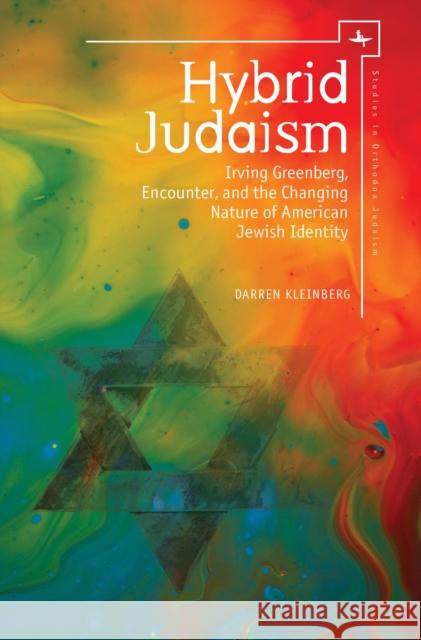Hybrid Judaism: Irving Greenberg, Encounter, and the Changing Nature of American Jewish Identity » książka
Hybrid Judaism: Irving Greenberg, Encounter, and the Changing Nature of American Jewish Identity
ISBN-13: 9781618115454 / Angielski / Miękka / 2016 / 170 str.
Hybrid Judaism: Irving Greenberg, Encounter, and the Changing Nature of American Jewish Identity
ISBN-13: 9781618115454 / Angielski / Miękka / 2016 / 170 str.
(netto: 72,02 VAT: 5%)
Najniższa cena z 30 dni: 76,04
ok. 16-18 dni roboczych
Bez gwarancji dostawy przed świętami
Darmowa dostawa!
American Jewish identity has changed significantly over the course of the past half century. During this time, Irving Greenberg developed a unique theology that anticipated David Hollinger's notion of postethnicity and represents a compelling understanding of contemporary American Jewish identity. Greenberg's covenantal theology and image of God idea combine into what Kleinberg refers to as Hybrid Judaism. Central to Greenberg's theology is recognition of the transformative power of encounter in an open society, heavily influenced by his own encounters across Jewish denominational boundaries and through his participation in the Christian-Jewish dialogue movement. Presented here for the first time, Greenberg's theology of Hybrid Judaism has great relevance for our understanding of American Jewish identity in the twenty-first century.
American Jewish identity has changed significantly over the course of the past half century. During this time, Irving Greenberg developed a unique theology that anticipated David Hollinger's notion of postethnicity and represents a compelling understanding of contemporary American Jewish identity. Greenberg's covenantal theology and image of God idea combine into what Kleinberg refers to as Hybrid Judaism. Central to Greenberg's theology is recognition of the transformative power of encounter in an open society, heavily influenced by his own encounters across Jewish denominational boundaries and through his participation in the Christian-Jewish dialogue movement. Presented here for the first time, Greenberg's theology of Hybrid Judaism has great relevance for our understanding of American Jewish identity in the twenty-first century.











